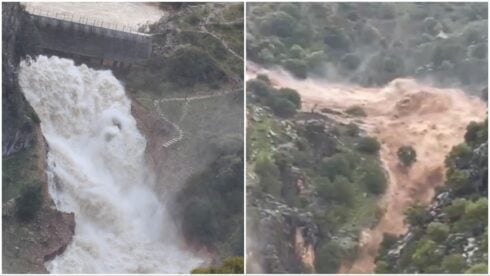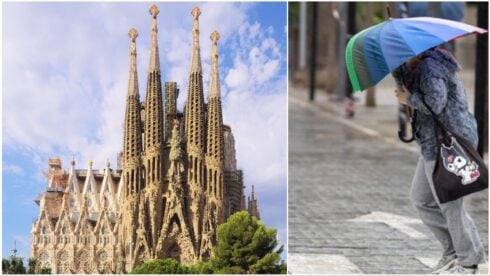THE LEADER of the conservative Partido Popular, Alberto Nuñez Feijoo, is not letting up with his strategy of putting public pressure on the new government of Prime Minister Pedro Sanchez.
On Tuesday, the Galician politician announced that he was calling fresh street protests for the beginning of December, to ‘defend the Spanish Constitution’.
The demonstrations will coincide with the 45th anniversary of the creation of the country’s Magna Carta in the wake of the death of former dictator Francisco Franco and during Spain’s transition to democracy.
“We are not going to shut up,” Feijoo said on Tuesday during an interview on Spanish television network Antena 3. “We consider that the responsibility we have is the greatest responsibility. In my opinion, we have a responsibility greater than that of the government, because it is an irresponsible government.”
Feijoo won the July 23 general election, but fell well short of a majority. He was invited to form a government by Spanish King Felipe VI but failed to secure enough votes at an investiture debate in September, only gaining the support of far-right Vox and two small parties.

The call to protest has been sparked by the political manoeuvres that Pedro Sanchez had to pull off in order to return to office as prime minister. Having also fallen short of a majority at the inconclusive general election on July 23, he had to secure the support of a series of smaller parties, such as leftist alliance Sumar, to get enough votes for his investiture debate.
The most controversial of these deals was with two Catalan separatist parties, Junts per Catalunya and Esquerra Republicana de Catalunya. As well as promising the write-off of debts for the region and a road-map for negotiations on its future, an amnesty law was agreed.
This amnesty will see anyone convicted or still facing charges for their role in the independence drive over the last 10 years escape prosecution. The key beneficiary of this will be the Junts per Catalunya leader Carles Puigdemont, who has been living in self-imposed exile since 2017 after fleeing Spain to escape prosecution for his role in the independence drive that year.
It is these deals that have so angered the Partido Popular and far-right Vox.
On November 12, Feijoo called demonstrations in all of Spain’s 50 provinces. The biggest protest that day was seen in Madrid, where the central government’s delegation said that 80,000 people turned out (the organisers claimed there were half-a-million).
This past weekend there was another mass protest in the central Plaza de Cibeles. Members of the PP and Vox were present at the demonstration on Saturday, with organisers claiming a million people turned out. The central government delegation, however, put its estimate at 170,000 people.
There have also been spontaneous anti-government street protests, which have sometimes turned violent, on the capital’s Ferraz street, outside the Socialist Party’s headquarters.
These have been going on for 18 nights in a row now, and last night saw the arrest of an alt-right agitator and pseudo-journalist Vito Quiles for allegedly disobeying police and undermining the authority of the law.
Read more:
- Who’s in and who’s out as Spain’s newly-elected PM opts for majority female Government
- Sex dolls as a form of protest: Demonstrations in Madrid against Catalan amnesty take a surreal turn
- Why are people across Spain protesting against Pedro Sanchez’s Catalan amnesty deal?
Click here to read more News from The Olive Press.








